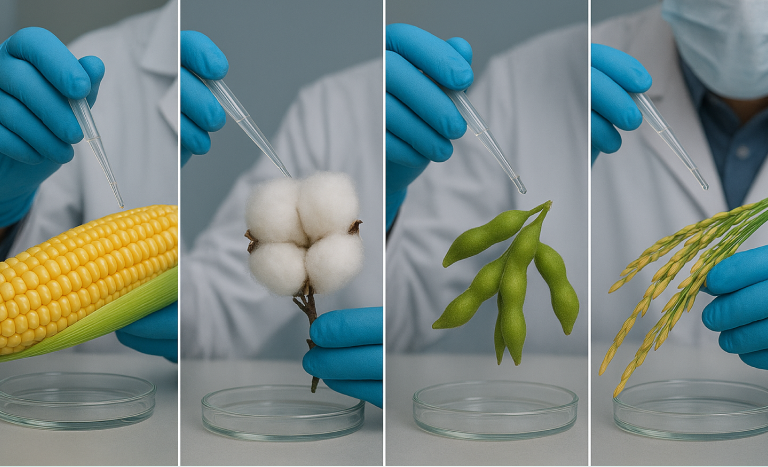Overview
GMO stands for Genetically Modified Organisms-an organism whose genetic material has been altered using biotechnology to introduce specific traits such as herbicide resistance, pest tolerance, or improved nutritional value. The most common GMOs are agricultural crops like soybean, corn, cotton, and canola etc. However, concerns about health and environmental impact make GMO testing essential. Using advanced DNA-based methods like PCR, ensure accurate labeling, regulatory compliance, and transparency—promoting safety, sustainability, and consumer trust worldwide.
At FARE Labs Pvt. Ltd., Gurugram, we provide comprehensive GMO testing services using Real-Time Polymerase Chain Reaction (RT-PCR), a gold-standard molecular biology technique known for its high sensitivity, specificity, and reliability.
Why GMO Testing is Important?
| Purpose | Description |
| Regulatory Compliance | Adherence to national and international labeling requirements like (FSSAI, USDA, EU & other standards) |
| Quality Assurance | Verification of raw materials and finished products for non-GMO claims |
| Consumer Safety & Transparency | Ensures informed choices and prevents undeclared GMO presence |
| Export Readiness | Compliance with global trade and export documentation requirements |
| Preserving Biodiversity | Prevents unintentional spread of GMOs to wild species. |
Our RT-PCR Based GMO Testing
Our GMO detection platform is based on Real-Time PCR, which enables qualitative analysis of GMO content in a wide range of matrices including food, feed, grains, and processed materials.
Key Features:
- Detection of promoter, terminator, and event-specific sequences based on Taq man approach.
- High sensitivity, capable of detecting GMO presence as low as 0.1%.
- Multiplex PCR capability for simultaneous detection of multiple GMO targets.
- GM targets include CaMV 35S Promoter, NOS Terminator, FMV Promoter, Pat, GTS 40-3-2 DNA sequences.
- Validated methods as per ISO/IEC 17025:2017
Sample Types We Analyse:
- Raw agricultural commodities (soybean, maize, cotton, canola, rice, etc.)
- Processed food products and ingredients
- Animal feed and feed additives
- Seeds and seed lots
- Cotton and Textiles
Accreditation and Quality Assurance
Accredited as per ISO/IEC 17025:2017 for GMO testing in food and agricultural products, our testing protocols follow international standards and are regularly validated for accuracy and precision.

